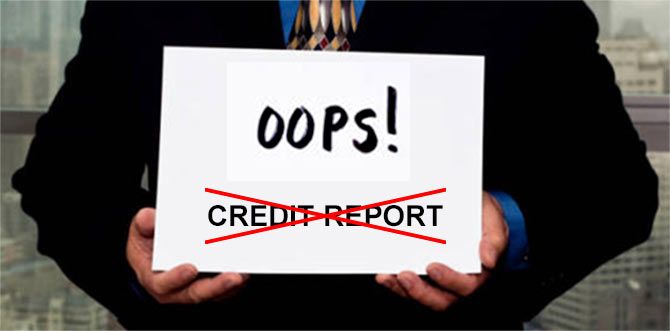An error does not become a mistake until you refuse to correct it. Errors in your CIBIL credit report can become costly mistakes if you do not rectify them in time. So next time you get your CIBIL report, do not just see the score and tuck it away.

Read it carefully and check if the data is correct.
Your credit information is collected by every bank where you have a relation, be it a savings account, a current account, a credit card or a loan.
The bank keeps track of the length of your account, its usage, your payment track record and other data.
It is likely that one or more of these financial institutions may hold incorrect or outdated data on your banking /credit records. The data that the financial institutions hold is passed on to the credit information companies. The credit information companies simply enter these data into the records they hold about you and if your data has errors your CIBIL report will be faulty.
This is exactly what happened to Sonia Das. When Sonia got married, her name changed and she informed her bank accordingly. The information was processed and then her records got mistaken by another person of the same name who had a poor credit standing. And, ergo, suddenly Sonia's CIBIL score had fallen. It took some time before the credit agency could cross verify the information after Sonia put in a complaint.
It is easy enough for errors to get into your CIBIL report. Errors lead to a faulty credit score, which, in turn, means that your loan might be rejected or you may get higher rates.
Here are some of the common errors that you must scan for in your CIBIL report.
1. Your personal information
Your credit report contains your personal information like your name, address, date of birth etc. While it may seem trivial, personal information being correct means your record cannot be mistaken for someone else.
2. Some of your records are missing
Timely payments on your current loans and credit cards will boost your credit score. Make sure that all your loan accounts are reflected in your CIBIL credit report as if good accounts if not reflected in credit report may bring down your credit score.
3. Your report shows incorrect credit limits
It is possible that your credit card issuer has increased your credit limit and not informed the credit bureau. A lower credit limit would mean that your account will show a high credit utilisation ratio. A high credit utilisation ratio impacts your CIBIL score negatively.
4. Your records are not updated
It is possible that you have paid off an outstanding loan or cleared a delayed payment over three months but your CIBIL report records still show it as outstanding in spite of the time it may take the bank normally to make changes in the records. This will have an adverse effect on your CIBIL score.
The author is Co-founder and Director Credit Vidya.












 © 2024 Rediff.com -
© 2024 Rediff.com -